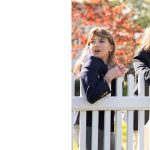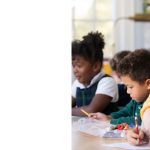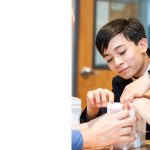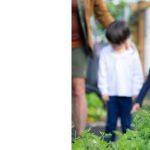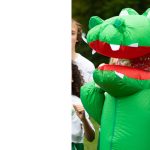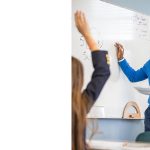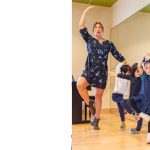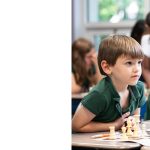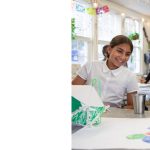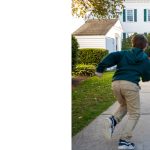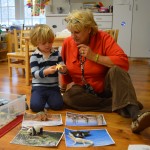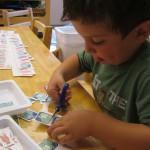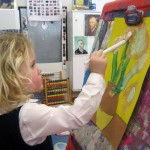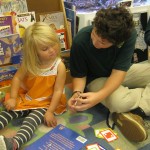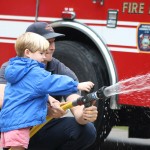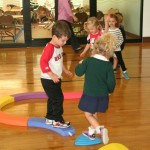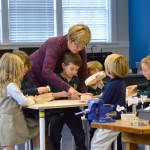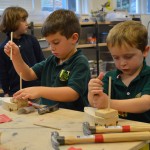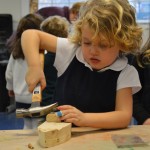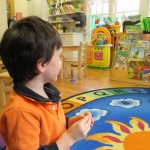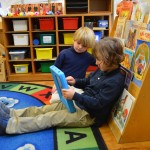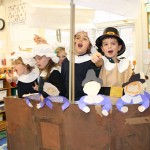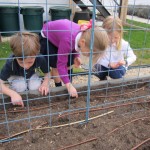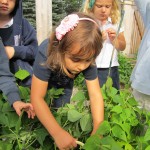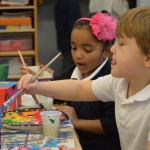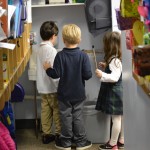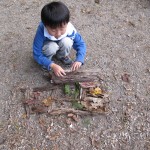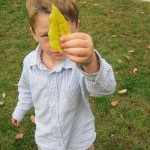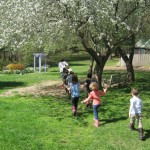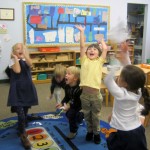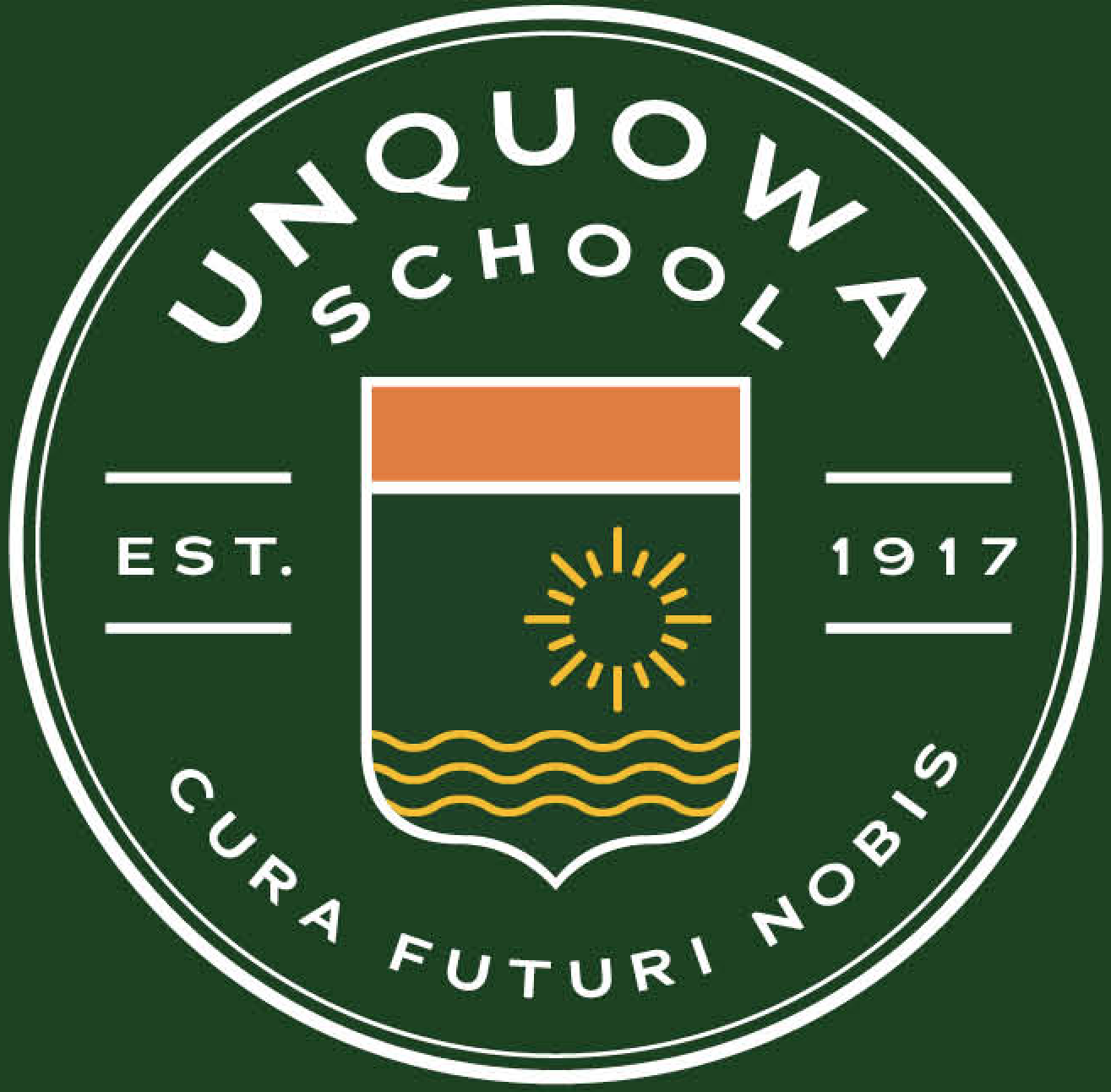“Unquowa’s progressive approach and our small class size give me such freedom to adapt plans based on my students’ interests. We’ll listen to jazz music while learning about Jackson Pollock and throwing paint onto canvas. Kids are learning by leaps and bounds at this age, and our environment allows me to approach each child’s curiosity individually in order to help them develop both socially and cognitively.”
—Janice Shannon, PreK Teacher
Capturing and Nurturing Intellectual Curiosity
Our early childhood faculty never underestimate the intellectual curiosity of children and recognize that early childhood (PreK, Kindergarten) offers educators the unique opportunities to reinforce and build upon the natural curiosity and love of learning that children are born with. Intellectually, the research is overwhelmingly convincing that children who arrive in kindergarten and first grade with a strong verbal and mathematical foundation have a far greater likelihood of success. How far this introduction goes varies greatly among children, and our teachers work to make sure that children who are ready for reading or math enrichment receive that challenge, while those who are still in the predictable stage of readiness skills are given the same attention, support and encouragement. In partnership with parents, our early childhood teachers address the socialization issues of a larger community than family and siblings, inculcating through play and games the notions of taking turns, negotiating with words rather than actions, and coping with the reality of sharing and cooperating.
Curriculum PreK – Kindergarten
As an integral part of a PreK through eighth grade school environment, our Early Childhood Program has the advantage of offering our pre-schoolers:
- visual arts where children have both the studio experience of working with materials for the purpose of individual expression and interacting with the work of established artists to develop their understanding of visual expression.
- performing arts where children experience dramatic play, dance and the early experience of voice and instrumental music.
- daily P.E. where students practice gross motor skills, develop strong fitness habits and learn the rudiments of team sports.
- Spanish and Mandarin classes where children learn, at an age when they still have an infinite capacity for the sounds of all languages, to toggle naturally from one language to another. These classes are taught in the target language and focus on listening and speaking in a way that imitates their first language acquisition. This program continues through the grades, gradually adding literacy as children are developmentally and cognitively ready. For more details and a short video about our Mandarin program, click here.
- makerspace experience where, from putting together their own workbench to learning how to handle and use tools, children experience the power and satisfaction of making. Makerspace activities engender confidence, spark innovation and creativity and reinforce the satisfaction of acquiring skills.
- environmental exploration that takes place in our school’s curricular garden, woods, and brook.
All of the above are taught by faculty of those disciplines. In addition, our youngest children have the opportunity to interact formally and informally on a regular basis with older children in our school.
Field Experience
From PreK through all Lower School grades, regular and meaningful field experiences reinforce the classroom experience, breathe life into the lessons learned there and expose our children to the people and resources—both natural and artistic—about which they learn in school. In Early Childhood, the bulk of these experiences take place right here, exploring our own campus, brooks and woods.
Assessment
Assessment of students’ growth takes place through teacher observations and a variety of verbal, drawn and written assessments as children emerge as readers and writers. PreK and Kindergarten parents receive interim and formal narrative progress reports each trimester and parent conferences are scheduled twice a year, and additionally at the request of the parent.


